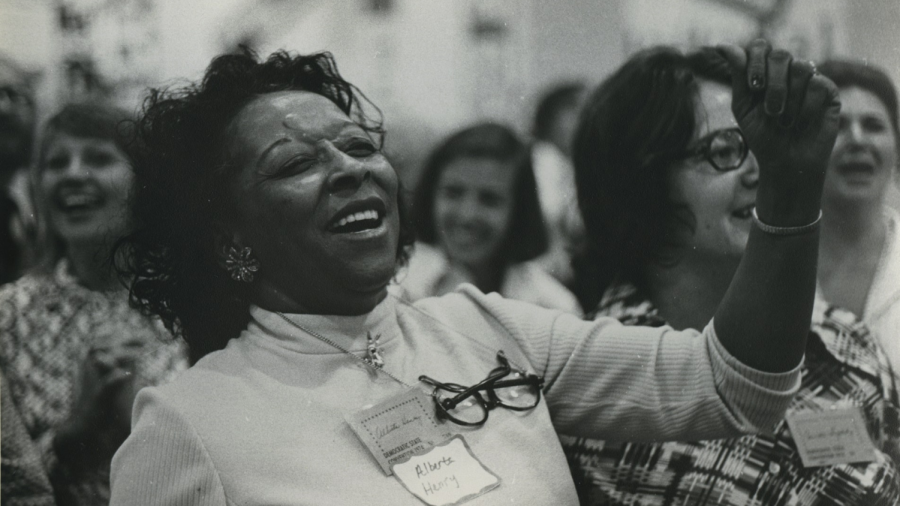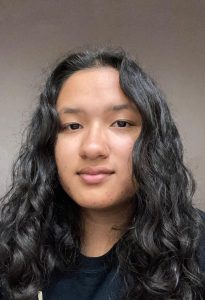Marriott Library Hosts Discussion and Exhibit on Local Activist Alberta Henry
January 19, 2022
On Tuesday, Jan. 18, the J. Willard Marriott Library held an event on Facebook Live to discuss the legacy of prominent Utah activist, educator and civil rights leader Alberta Henry, who lived from 1920 to 2005.
In the early 1960s, Henry began efforts to fund scholarships for Black students. Advancing equity for Black students and other students of color in Utah would become her life’s work. In 1971, she received an honorary doctorate from the University of Utah in recognition of her work.
The discussion was titled “Becoming the Beloved Community: A Conversation About Alberta Henry and Black Life in Salt Lake City,” and is one of several events taking place during the University of Utah’s Martin Luther King, Jr. week from Jan. 15-21.
Five panelists were in attendance at the discussion; France Davis, community leader and pastor of the Calvary Baptist Church, Kathleen Christy, retired assistant superintendent for equity and advocacy in the Salt Lake City school district, Frances Battle, principal of Nibley Park School, Shauna Graves-Robertson, a judge on the Salt Lake County Justice Court and Jeanetta Williams, president of the NAACP Salt Lake Branch. Allyson Mower, a librarian at the Marriott Library, facilitated the discussion.
The event began with a discussion of what it means to be a part of a beloved community, which is the central theme of this year’s MLK Week at the U.
Pastor Davis shared some of the traits included in Martin Luther King, Jr.’s definition of the beloved community. He said that while we have made progress towards realizing that definition, there is still much work to be done.
“The beloved community is grounded in reconciliation, restoring relationships, building them up where they ought to be … it creates a community of non-violence … understanding, trust and love,” Davis said. “There is a lot of work that needs to be done to show that we are not hateful or mean-spirited, but beloved, one by the other.”
Much of the discussion focused on the changes which Henry fought for in education, such as the lack of Black and Indigenous history featured in Utah textbooks.
“To leave out the African American story means that you are teaching history that is inaccurate,” Graves-Robinson said. “We have a very rich history of African American history in this state … we were here before the Mormons even came, because of course we had the Buffalo soldiers that were here. So it was very important to her that if you were going to teach, that you taught what was true, that it included all people’s history.”
Davis noted that Rep. Sandra Hollins, the only Black woman in the Utah state legislature, recently introduced a resolution to ensure that education includes all people of Utah.
“As pleased as I was to see the commission formed and to make Representative Hollins the head of that commission, I couldn’t help but think, ‘My, we still seem to be in the same place that we’ve been,’” Graves-Robertson said.
Another topic of discussion was the importance of giving everybody a voice, and how Henry was able to give this to others.
“[Henry] would go to meetings at schools with students … some of our parents of color don’t always feel welcome at school … so they don’t share their voice,” Battle said. “Mrs. Henry was that person who would tell parents, ‘No, you need to be an active part of your children’s life, and that includes education.’”
Several members of the panel encouraged people to engage in these issues through their votes and advocacy to the school board and state legislators. Williams also offered the NAACP as a resource for talking points when reaching out to legislators.
“When they go to the board meetings … or maybe when they don’t want to interact face-to-face with the legislators, they can email them,” Williams said. “They can email every last one of them, they can email their own representative … if they don’t hear from people, they’ll just think, ‘Well, I’m just going to vote the way I feel like I should vote.’”
The discussion ended with everybody sharing the way they remember Henry’s legacy. Pastor Davis shared his perspective on how she used her faith to fuel her advocacy.
“Alberta was a lady of strong faith, but she blended her faith with action … she read the scriptures, but she put legs and hands to them, then used them to guide others to becoming a beloved community,” Davis said.
Graves-Robertson pointed out the work she has done not just for Black people in Utah, but also for women.
“She was a champion for the rights of African Americans, she was a champion for the rights of other peoples of color … she was a champion for the rights of women,” Graves-Robertson said.
The Marriott Library posted a discussion guide to accompany the event. The guide includes relevant resources such as digitized photographs from the Alberta Henry collection and the Alberta Henry Papers, a collection of files detailing Henry’s contributions both in her role as president of the NAACP Salt Lake Branch and minority consultant for the Salt Lake City School District.
The Marriott Library is also hosting a new, in-person exhibit titled “Alberta Henry: Activist in Action,” to commemorate Henry’s work for the Salt Lake community. It is located on level four of the Marriott Library in the Special Collections reading room. It will be available from now through the end of March, from 10 a.m. to 4 p.m., Monday through Thursday. No appointment or payment is needed for viewing.








